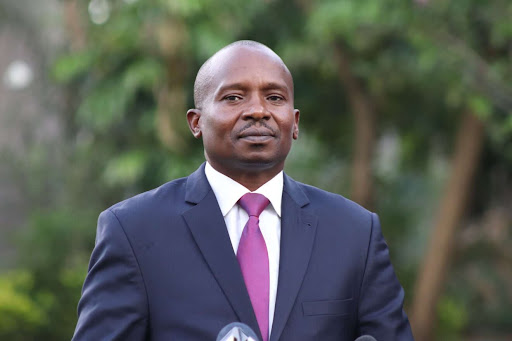

Deputy President Kithure Kindiki's remarks regarding the difference between public and national interests have elicited debate.
Until now, it was taken for granted that national interest originated from and coincided with public interest. Kindiki’s contention to the contrary drew mixed reactions.
Civil society leaders read mischief, while government mandarins received the message with glee.
Civil society comprises organisations that are non-state actors but exercise significant influence in policy formulation and monitoring.
Some are local while others are international. Many are national and statutory in nature and operation, yet others are inter-governmental and multilateral.
On the other side of the divide are political parties that seek to capture and exercise political power.
Political parties claim legitimacy on account of drawing public participation through membership and representation.
The civil society claims legitimacy by undertaking their activities without self-interest.
It is the inherent interests of both the political players and CSOs that lead to their invariable interpretation of national and public interests.
This difference in the interpretation of the same gives rise to the confusion experienced by the public.
As suggested by the Deputy President, efforts must therefore be made to develop a shared understanding of the two vital concepts. Each of the concepts must be understood in its proper context for its proper implementation.
Public and national interests draw their origins from the theory of the state. The modern state has its roots in the seminal works of Aristotle and Plato.
There came later theorists as Jean Jacques Rousseau, Bertrand Russell, John Locke and Thomas Hobbes.
They all had varied postulations about the nature of the state. However, they shared in the complementary roles of the people and government in the constitution of the state.
Hobbes famously stated that life in natural human habitat because of selfishness is “solitary, poor, nasty, brutish, and short” as it is war of every man against every man.
Locke, on the other hand, believed that individuals are naturally endowed with the rights to life, liberty, and property and that individuals could nevertheless agree to form a commonwealth in order to institute an impartial power capable of arbitrating their disputes and redressing injuries.
For Rousseau, the state is a morally neutral and peaceful condition in which solitary individuals act according to their basic urges, for instance, hunger, as well as their natural desire for self-preservation which, however, is tempered by an equally natural sense of compassion.
Finally, Russell noted that the essence of the state is that it is the repository of the collective force of its citizens.
This force takes two forms, one internal and the other external. The internal form is the law as demonstrated by the police force. The external form is the power of waging war, as embodied in the military.
The social contract theories of Hobbes, Locke, Rousseau and Russell were thus distinguished by their attempt to justify and delimit political authority on the grounds of individual self-interest and rational consent to submit to a sovereign authority.
Those conclusions were then reduced to the form of a social contract, from which it was expected that all citizens would diligently perform their duties and obligations to the state. In exchange, the government would guarantee and protect the essential rights of the citizens.
The proper understanding of the twin concepts of public and national interests is important for the healthy coexistence of the government and the citizens.
The effective implementation of the rules protecting both interests is necessary for the stability of the state.
The Deputy President is therefore in order to call out the relevant institutions to play their respective roles. In Kenya, as in many developing countries, there is no clear delineation between the state and government.
The situation is further complicated by the fact the functions of the state and government are normally performed by one institution.
In many of these countries these dual functions are vested in the presidency. Confusion thus abounds when the holders of the office act on occasion of public interest or national interest.
As has been demonstrated, the citizens in pursuit of happiness through the enjoyment of their basic rights would actively advocate for public interest.
On the other hand, the government in defense of the state and protection of citizens’ rights will strategically invoke national interests.
These interdependent interests should be pursued for the sake of the state and therefore cause no conflicts.
The confusion in the understanding of the difference between the state and government further fuels the conflict between the citizens, civil society organizations and government.
The government is the institution of the state endowed with resources and legitimate authority to execute the commitments of the state under the social contract theory. It has three arms to execute the mandate of the state: the executive, legislature and judiciary.
The state has the ancillary institution of the military and sovereign resource of geographical territory.
All these five precepts give life and reality to the state.
The government must therefore identify and defend the national interests on behalf of the citizens. It must at the same time zealously protect the public interests as its primary responsibility to the state.



